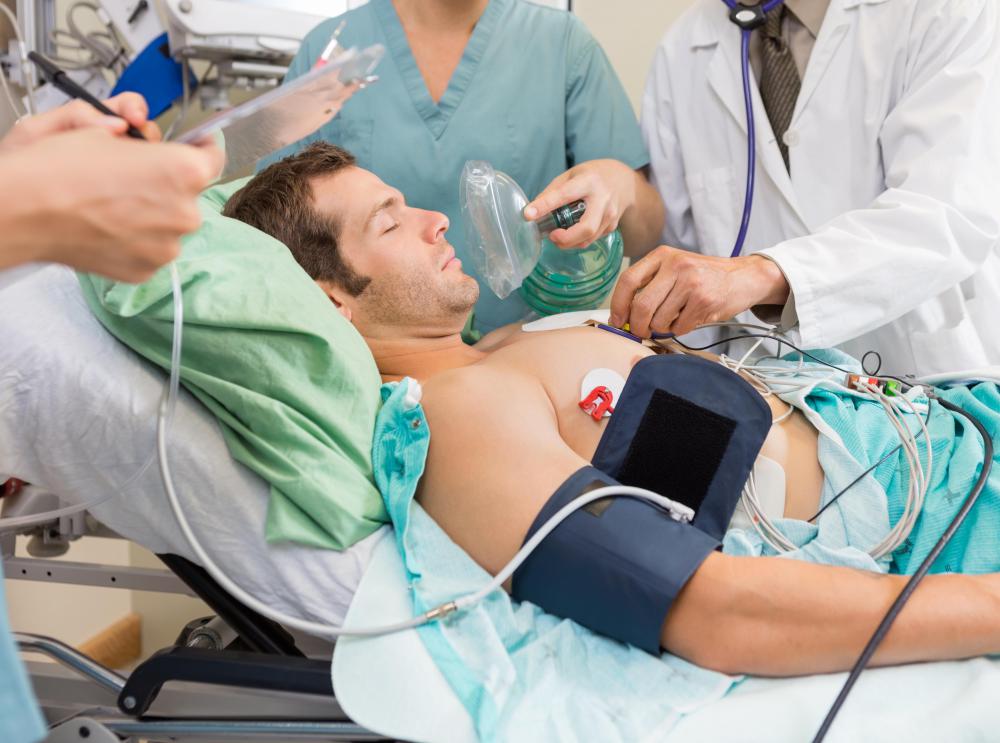At PracticalAdultInsights, we're committed to delivering accurate, trustworthy information. Our expert-authored content is rigorously fact-checked and sourced from credible authorities. Discover how we uphold the highest standards in providing you with reliable knowledge.
What Can I Expect during a ACLS Exam?
After you have completed all the rigorous preparation that the two-day Advanced Cardiovascular Life Support (ACLS) class requires before you even arrive, the ACLS exam itself should not present too much of a challenge. The exam consists of both a practical exam, requiring demonstrations of correct technique and procedure on a medical mannequin, and a written test at the end of the second and last day. A copy of the pretest is usually provided through the school that you have registered with or is readily available online. It is very similar to the actual ACLS exam. As a prerequisite to completing the course, you will also be required to demonstrate the correct procedure for a single-person intervention on a patient using an automated electronic defibrillator (AED).
As one component of your ACLS exam will be a practical one and you will be expected to take part in a variety of scenarios designed to replicate real medical emergencies, you should expect to stoop, carry, bend and kneel as needed. Therefore, dress appropriately and probably as you would for a shift at work. You will also be expected to bring your ACLS Provider Manual and your completed Pre-Course Assessment to gain entry to the first day of class. Review your school's specific guidelines. Many schools require that you also attend class with their own specific study guide.

Both portions of the ACLS exam will take place on the second day of the two-day class. The practicum exam — a code blue or cardiac arrest simulation — is one hour in length. In most facilities, the test is immediately preceded by a class practice and review of the material on which you will be tested. Pay close attention to what information is emphasized during the class practice. Your evaluation on the practical test is determined by your communication skills, your physical demonstrations enacting required procedures, and your adherence to the memorized ACLS algorithms.

The one-hour written ACLS exam is the last part of the two-day ACLS instruction and certification. This test, too, is preceded by a one-hour class review session. Again, pay close attention to the specific material reviewed and emphasized. It may also be helpful for you to recall the pre-course written assessment test you completed prior to the class. Expect to complete an answer sheet of at least 30 multiple-choice questions followed by 10 write-in answers for identifying specific cardiac rhythms.
AS FEATURED ON:
AS FEATURED ON:















Discuss this Article
Post your comments